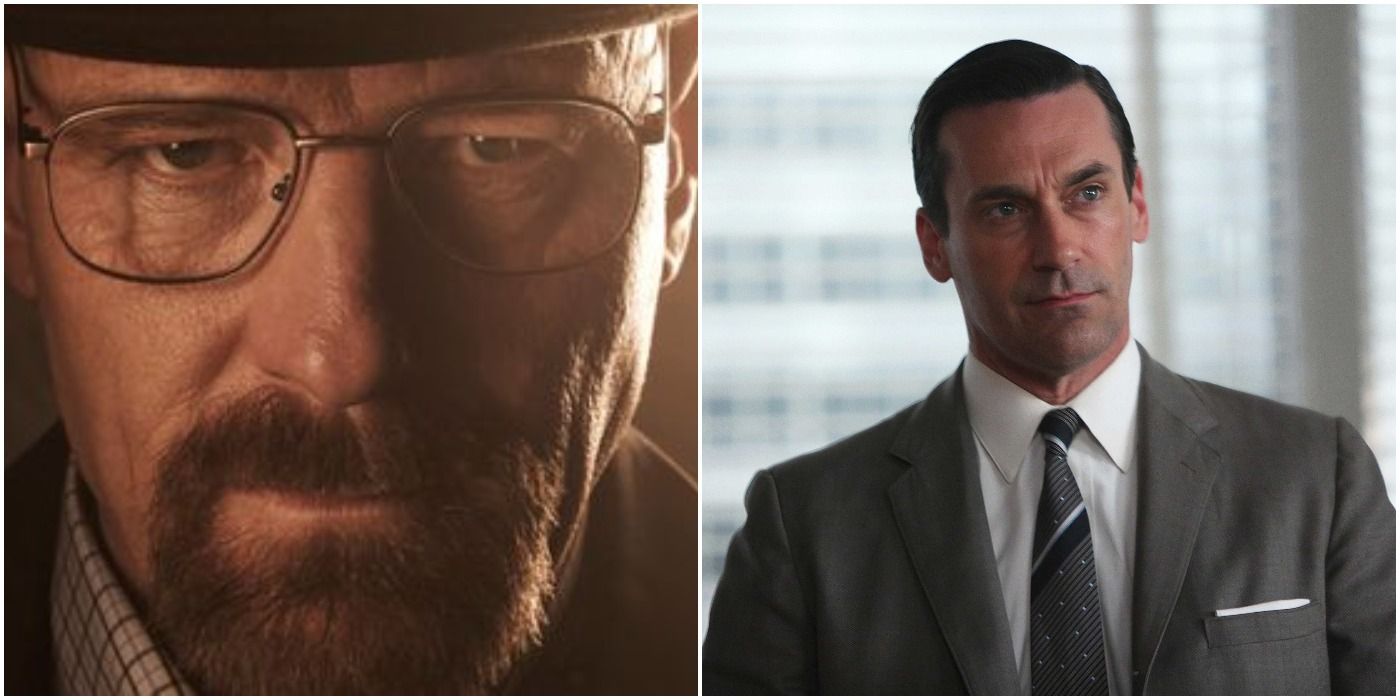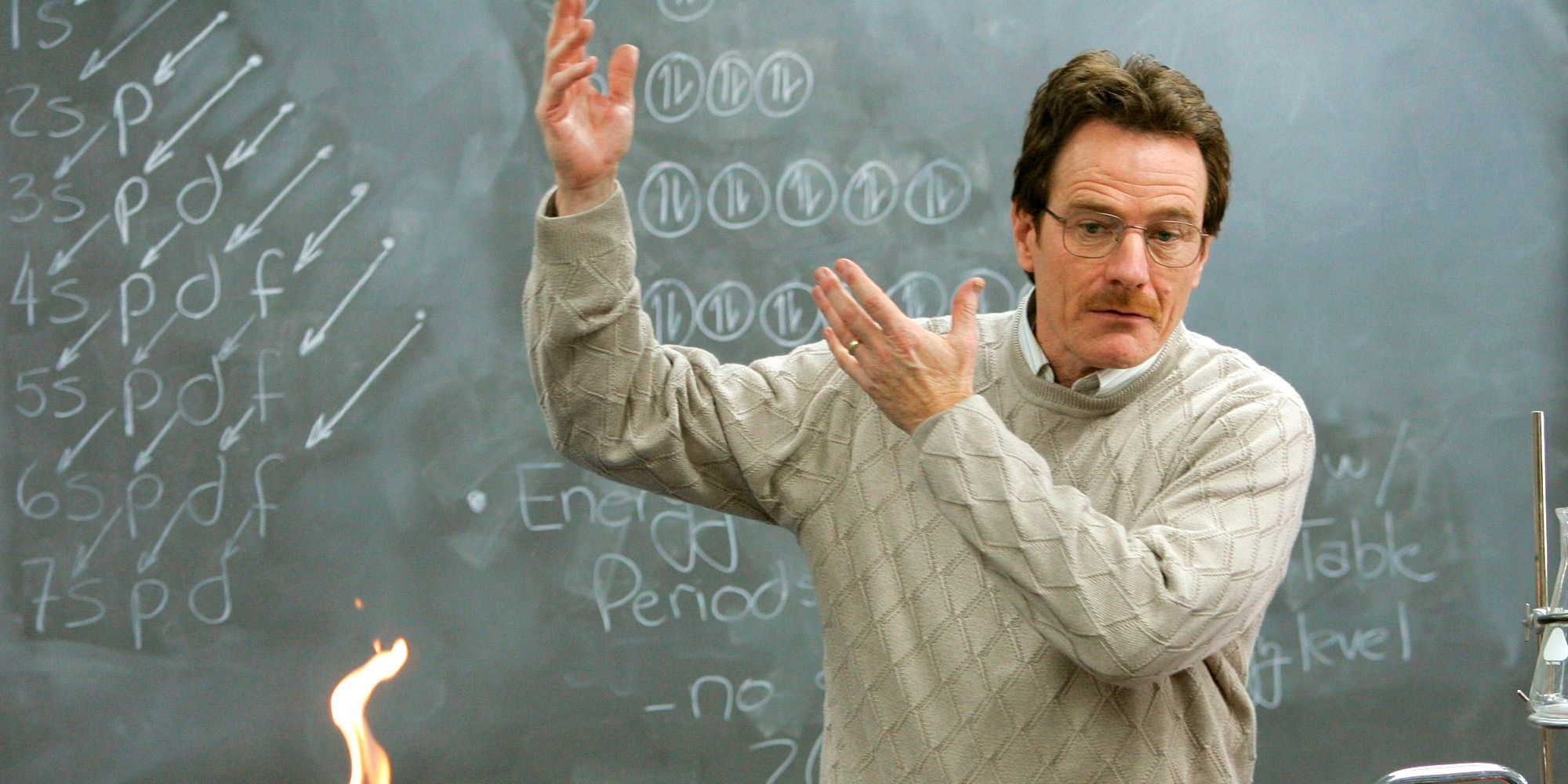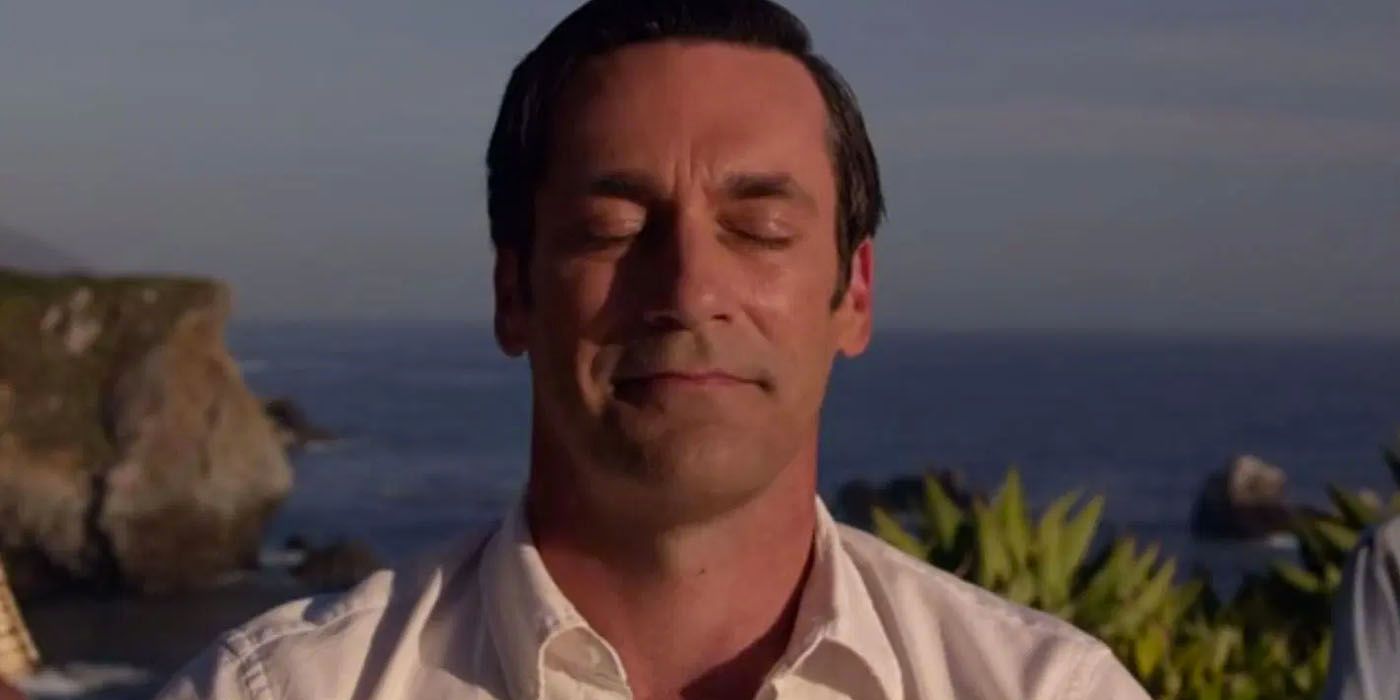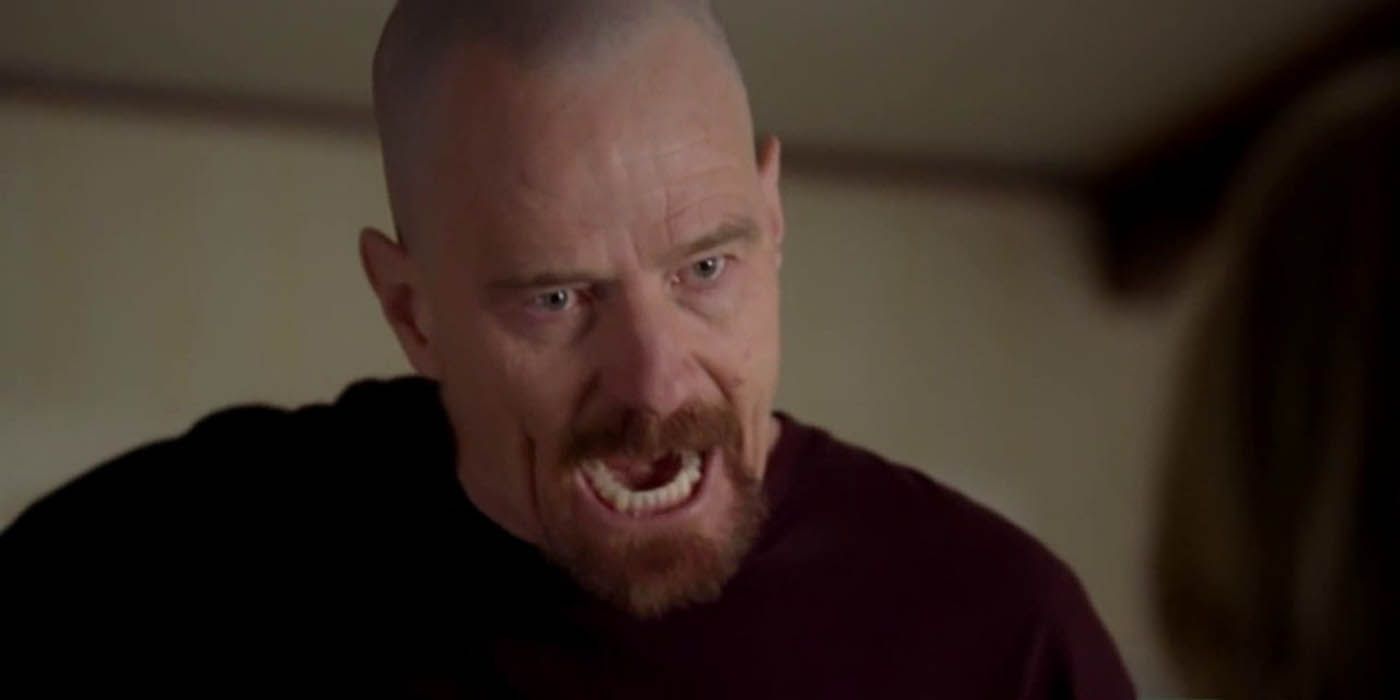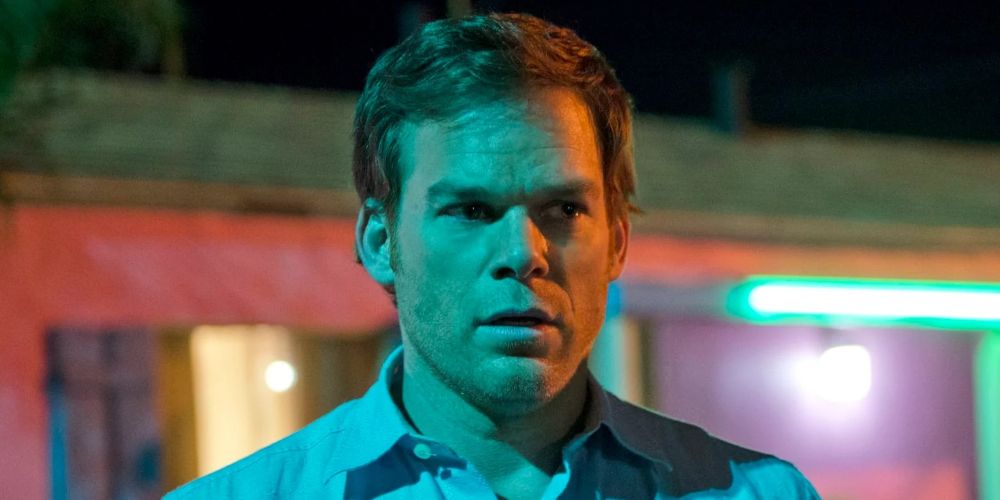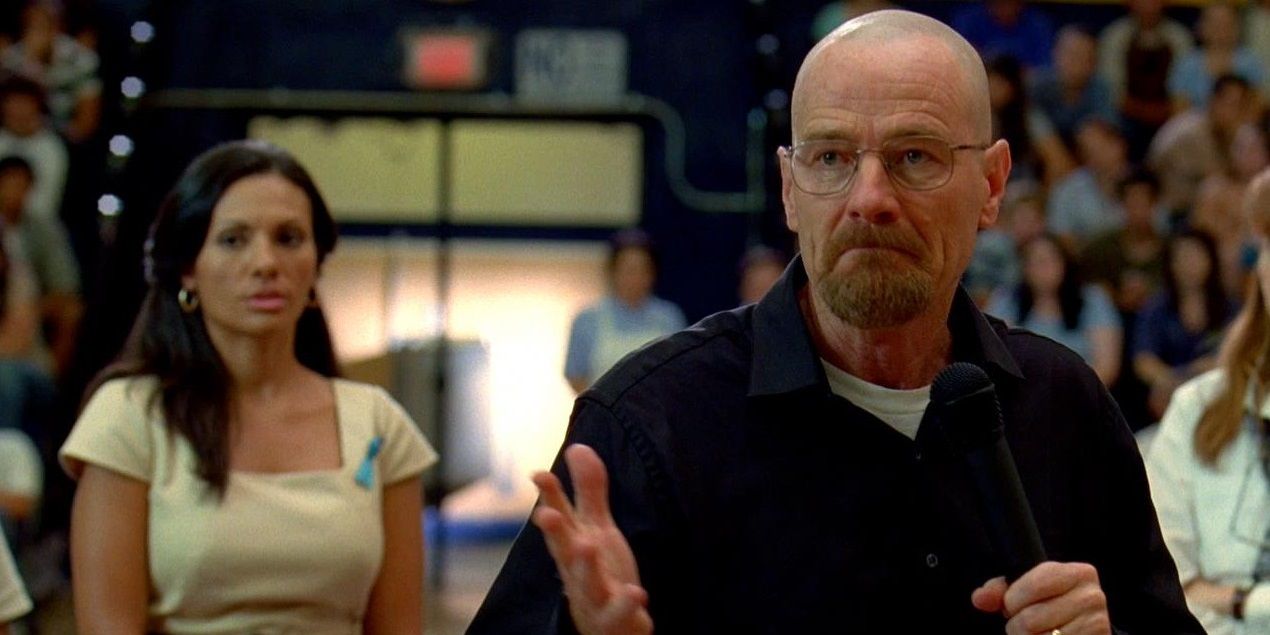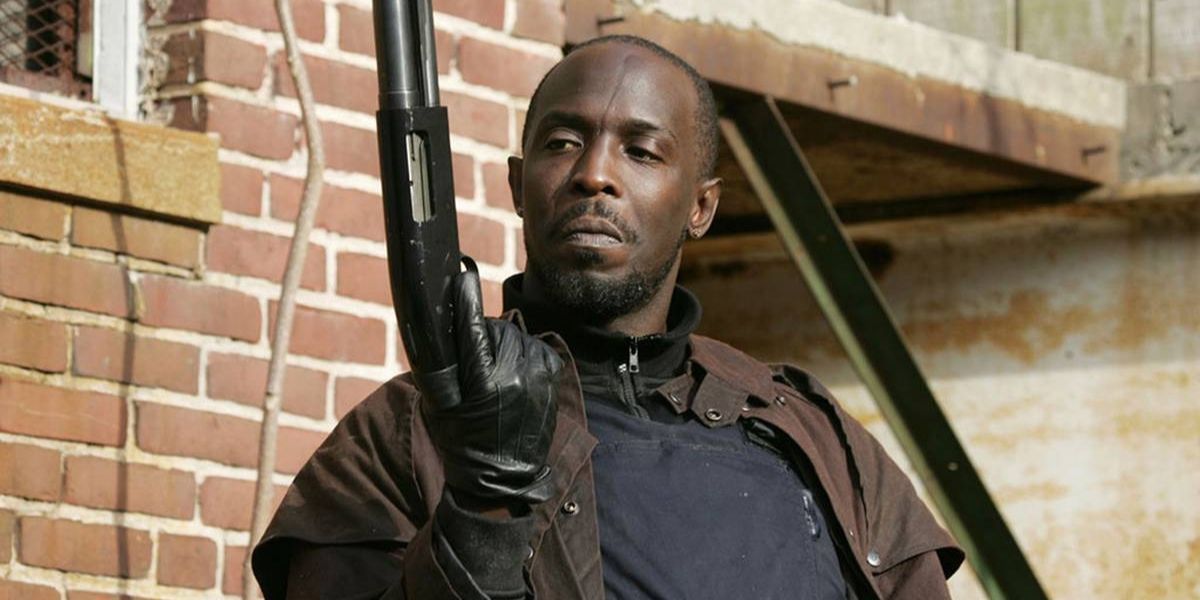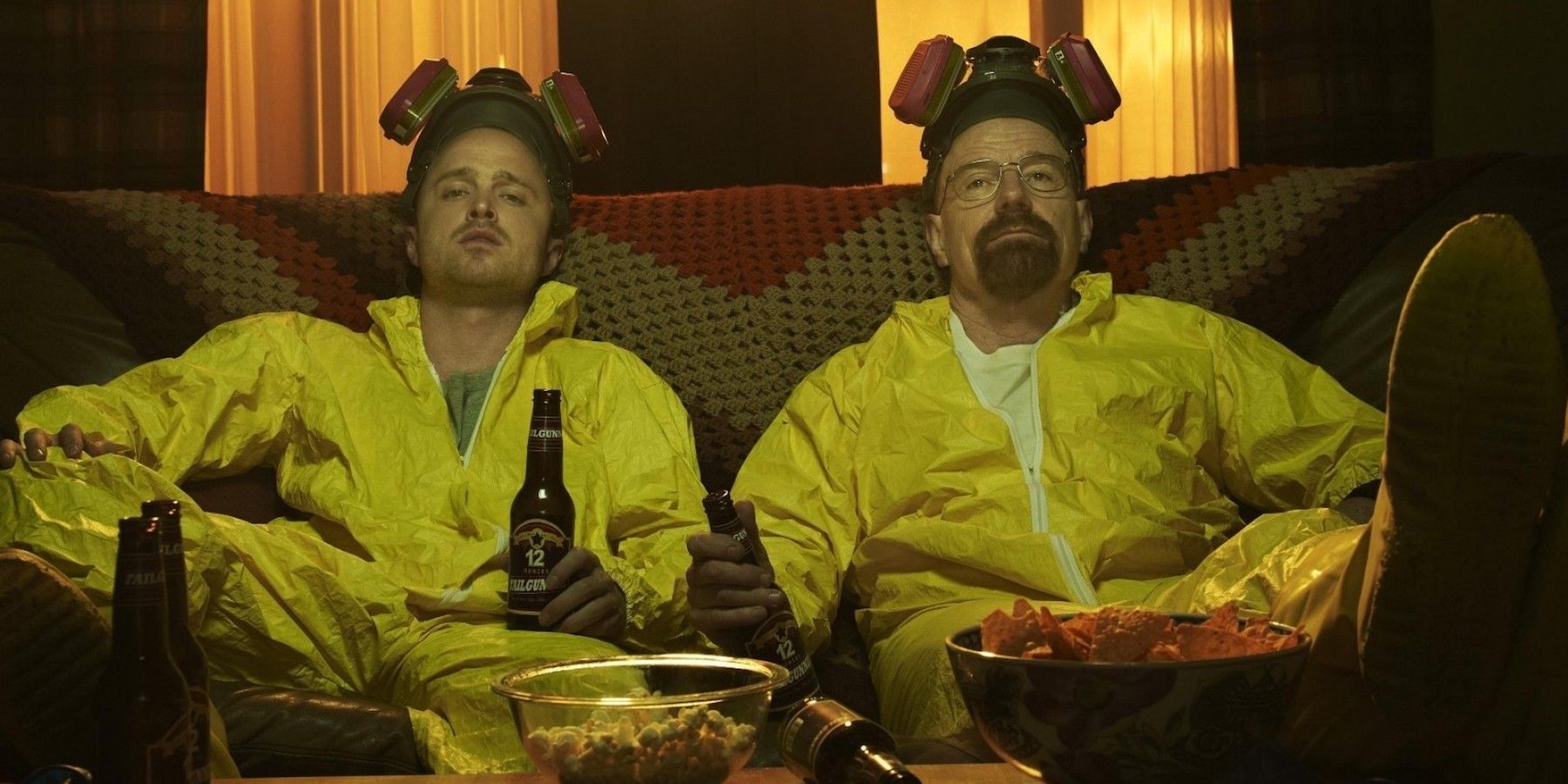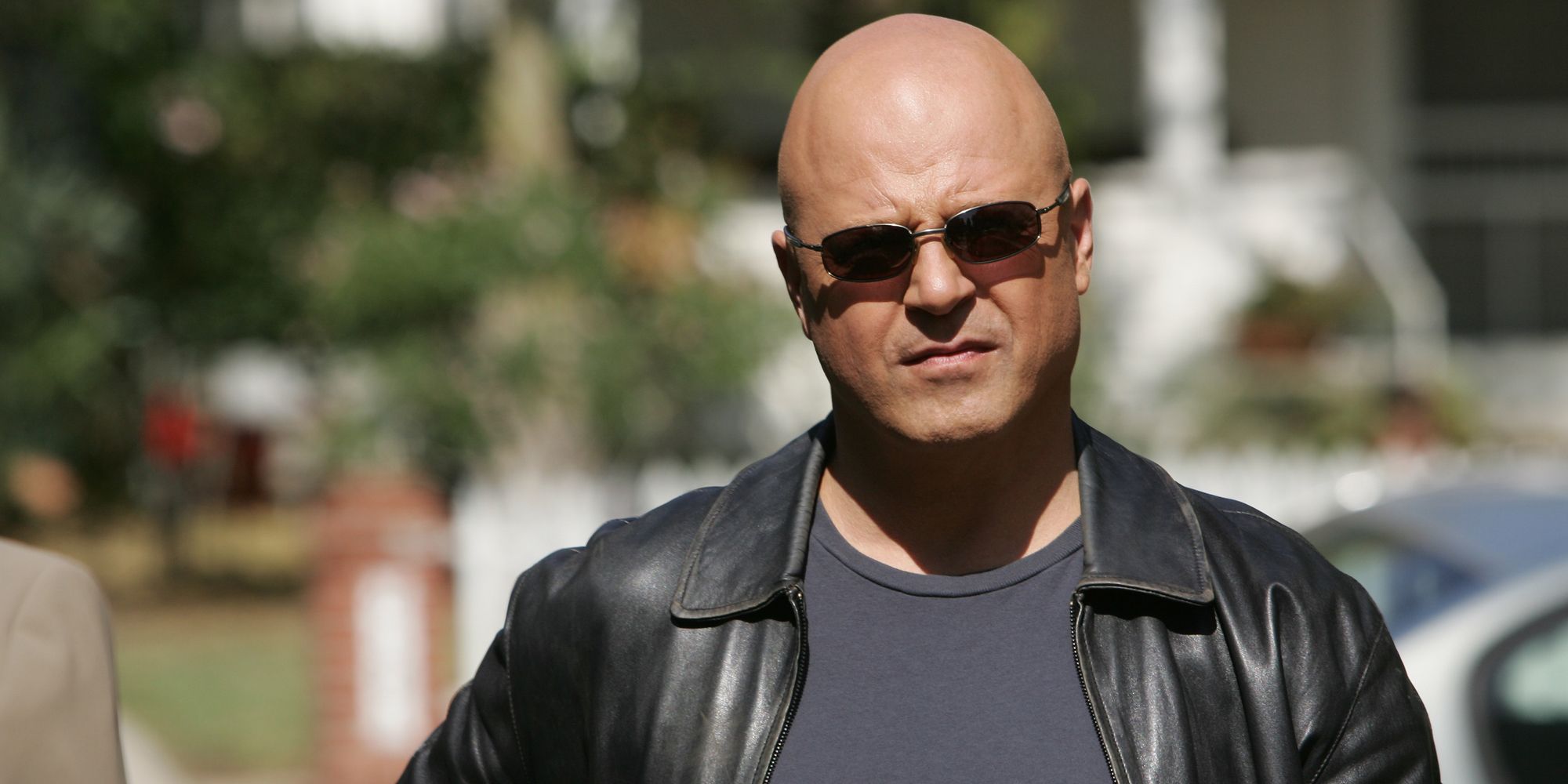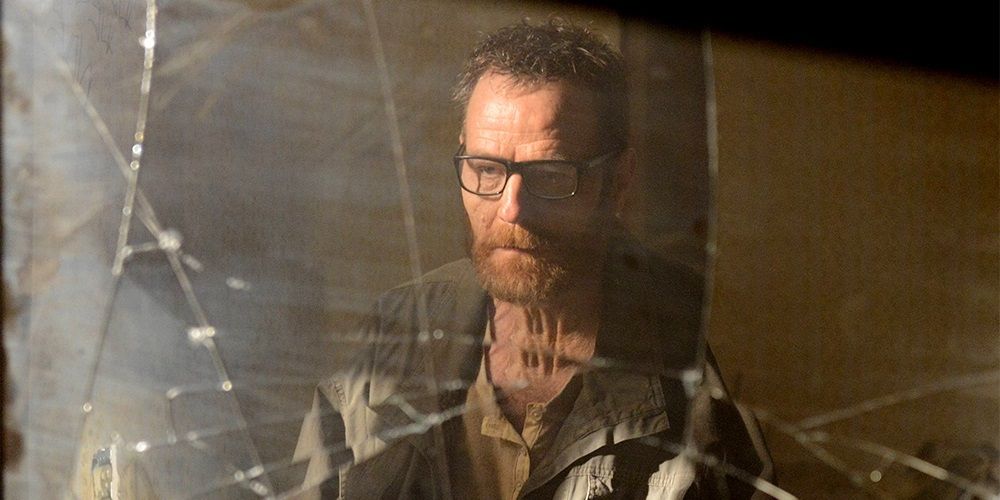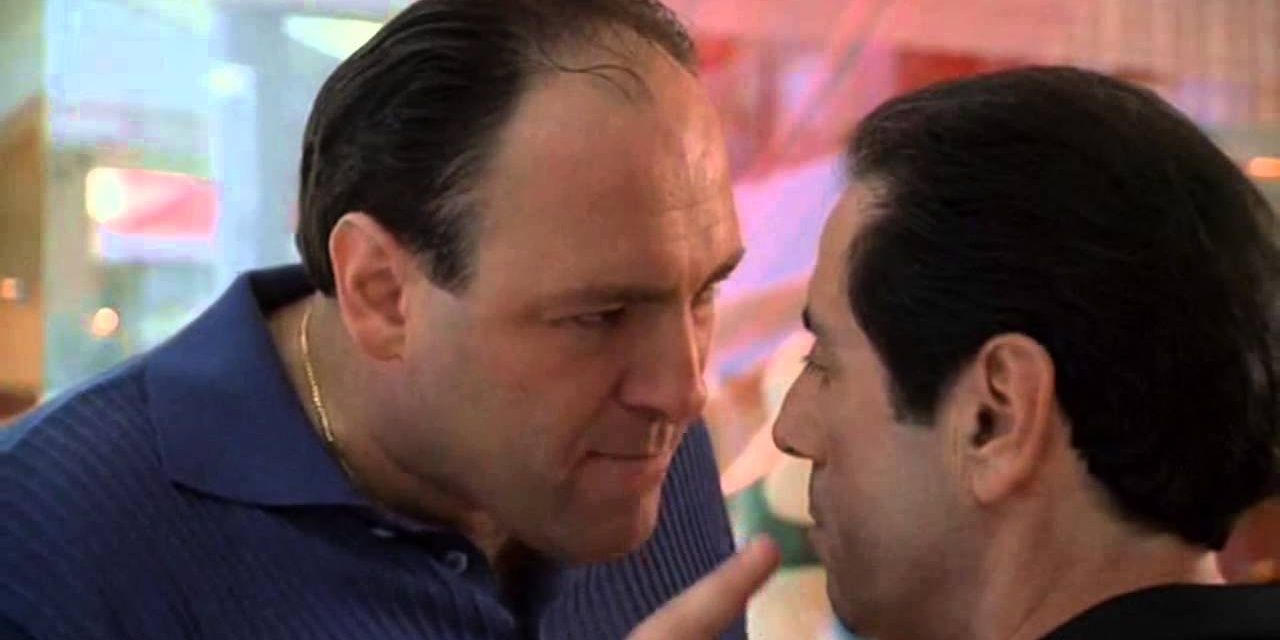The so-called Golden Age of Television was ushered in by groundbreaking HBO dramas like The Sopranos and The Wire, and arguably reached its peak with Breaking Bad, the story of a mild-mannered chemistry teacher’s five-season transformation into New Mexico’s preeminent meth kingpin. Having become disillusioned with the trappings of TV shows designed to have the same premise for years, Vince Gilligan made a show whose driving force is change.
One of the Golden Age traditions was antihero protagonists, with Breaking Bad’s Walter White standing as a prime example — and arguably the gold standard. But Heisenberg has a few competitors.
Walt Is The Best: The Series Is About Change
In the pilot episode of Breaking Bad, Walt telegraphs that the show is about change above all, telling his students that, while chemistry is technically the study of matter, he likes to think of it as the study of change. Every episode brought Walt a little bit closer to the brink of his own scruples.
Walt’s cancer diagnosis sets off a series of events that leads a good man to become evil — or, even more disturbingly, awakens evil that was always there but was repressed by mundane suburban existence.
Closest Contender: Don Draper (Mad Men)
Advertising was considered a dry subject before Mad Men came along and introduced the world to Don Draper. At the beginning of the series, he was depicted as an alcoholic executive who engaged in extramarital affairs with little regard for his wife’s emotions.
However, as the show went on, more and more was revealed about Don's backstory. He endured a tragic childhood before being shipped off to war and stealing a dead soldier’s identity. It all served to fill in the blanks of his complex psyche.
Walt Is The Best: He’s Compelling Even When He’s Evil
By the final season of Breaking Bad, Walt was pure evil. But he was still compelling. Whether he was telling Hank to “tread lightly” or gaslighting Skyler for fearing for her children’s lives, it was impossible to look away.
Since the audience got to see Walt at his best at the beginning of the series, providing for his family and treating everybody with respect, his evil turn was all the more shocking.
Closest Contender: Dexter Morgan (Dexter)
Although he was let down by a bitterly disappointing series finale episode, Dexter Morgan was a fascinating character. He was a serial killer who targeted other serial killers.
Dexter’s voiceover narration put fans right in his head, communicating with the “Dark Passenger” that forces him to kill people.
Walt Is The Best: Bryan Cranston Made His Motivations Understandable
There’s an old adage that a character doesn’t have to be likable; they just have to be interesting. The audience doesn’t have to like them if they can understand them. No matter how evil Walt got, his decisions made sense, because of Bryan Cranston’s incredible acting.
When Walt gives that disastrous speech about the airplane collision in the school auditorium, Cranston makes it work. It’s hard to watch, but it’s easy to understand where it’s coming from.
Closest Contender: Omar Little (The Wire)
David Simon’s The Wire just might be the greatest series in the history of television, exposing the institutionalized corruption in Baltimore — and, more broadly, in America — with documentary-like realism and fair and balanced perspective.
Omar Little, played with gusto by the great Michael K. Williams, is a badass vigilante who used that corruption to his advantage, robbing drug dealers and marking up their prices in a Robin Hood-style wealth redistribution plot.
Walt Is The Best: He’s Constantly Contrasted With The Supporting Characters
The best TV antiheroes aren’t just interesting in their own right. A huge part of making an antihero work is contrasting them with the supporting characters, because that’s what supporting characters are for. In Breaking Bad, Walt is constantly juxtaposed with all the characters around him.
His protégé Jesse is inherently good, but gets corrupted by his inherently bad mentor’s manipulation; his wife Skyler falls out of love with him and eventually fears him; his brother-in-law Hank is a lawman in a lawless world.
Closest Contender: Vic Mackey (The Shield)
Arriving between the trendsetting reign of Tony Soprano and the game-changing transformation of Walter White, Vic Mackey enjoyed a fascinating arc on The Shield. In the very first episode, Mackey shoots and kills a fellow cop, telling the audience right away that he’s unapologetically corrupt.
It’s not easy to make a crooked cop work as the protagonist of a police procedural, but Michael Chiklis made for a riveting lead and series creator Shawn Ryan used this atypical hero to put a fun twist on a well-worn genre.
Walt Is The Best: He Spends The Series Lying To Himself
A compelling component of any character is the lie they tell themselves. Throughout Breaking Bad, Walt lies to everyone he loves to maintain his secret double life as a drug lord, but he also lies to himself about why he cooks meth.
In the series finale, as he seems to launch into yet another speech about how all his crimes were to help his family, he reveals that he did it for himself because he liked being the best at something.
Closest Contender: Tony Soprano (The Sopranos)
Tony Soprano set the template for the TV antihero. Until David Chase created this morally ambiguous mobster, TV series leads were all likable, heroic figures like Captain Kirk. But Tony could get away with questionable decisions because he would discuss those decisions with Dr. Melfi right after he made them, giving viewers a window into his mind.
James Gandolfini brought a real humanity to Tony. Real-life mafiosos often praised his performance, but his performance is so identifiable that anyone with a family or a career could relate to him.

